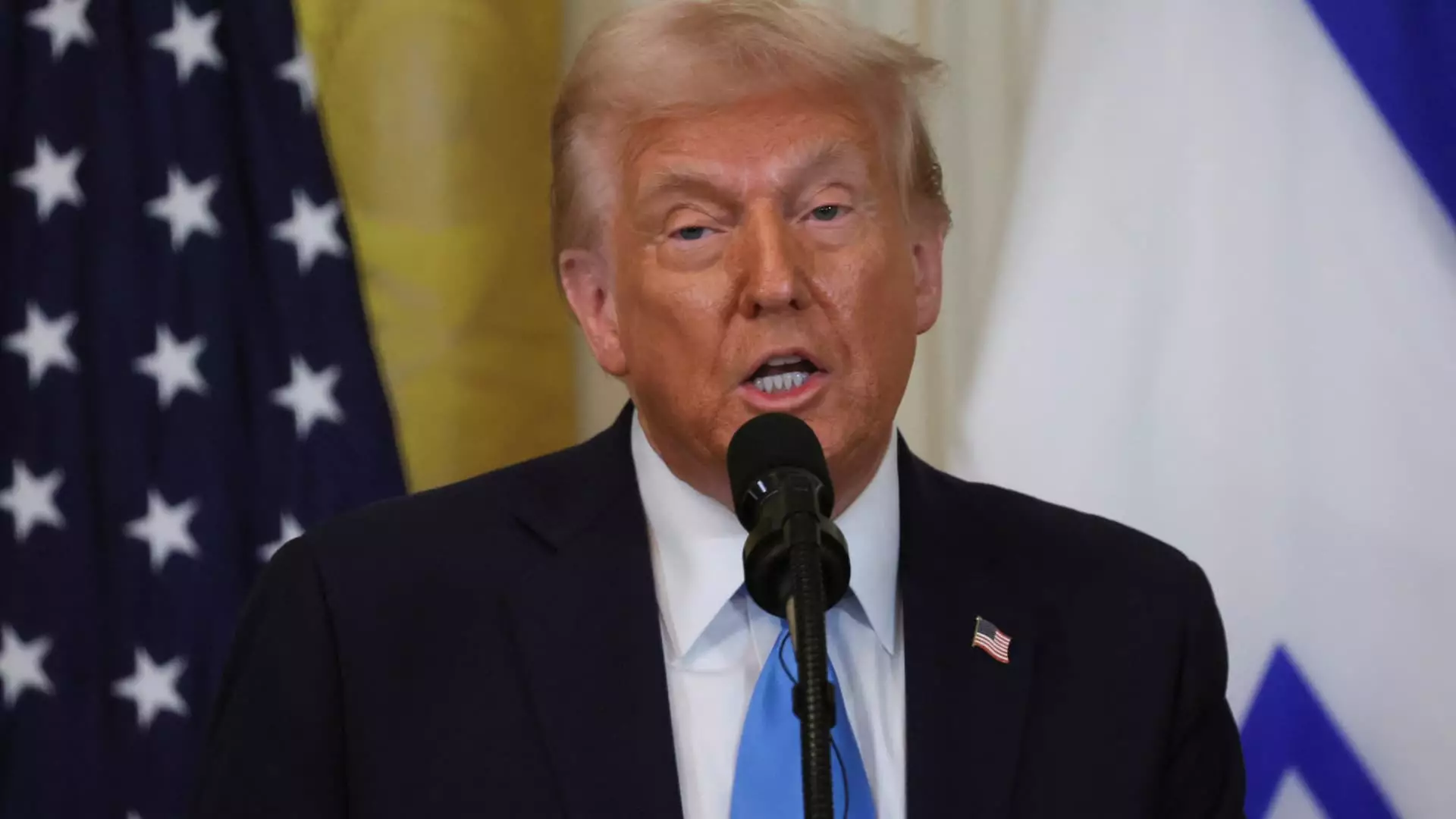The recent statements made by President Donald Trump regarding the Gaza Strip have sparked intense debate and controversy within both domestic and international spheres. During a press conference with Israeli Prime Minister Benjamin Netanyahu, Trump articulated a plan that envisions the United States taking responsibility for Gaza, suggesting that the territory could be transformed into a haven of economic prosperity akin to “the Riviera of the Middle East.” However, the implications of such comments, both politically and ethically, raise numerous questions about leadership, nationalism, and the future of the Palestinians living in Gaza.
At the heart of Trump’s proposal is the firm assertion that the United States should “take over” Gaza, including a call for the 2 million Palestinians currently residing there to relocate to neighboring countries such as Jordan and Egypt. Trump’s rhetoric paints a picture of a vibrant future, suggesting that if properly managed, Gaza could be turned into a center of economic development, offering “unlimited numbers of jobs and housing.” This perspective, however, can appear highly reductive, overlooking the profound complexities of Palestinian identity and the historical contexts surrounding the Israeli-Palestinian conflict.
The notion that the U.S. would “own” Gaza reflects a colonial mindset that can trivialize the suffering of civilians affected by prolonged conflict. By framing the discussion around American control, Trump fails to acknowledge the sovereignty and aspirations of the Palestinian people, reinforcing a narrative that excludes them from meaningful participation in their own future. The language of ownership implies a disregard for the deeply entrenched struggles for self-determination that have marked the Palestinian experience.
Prime Minister Netanyahu’s endorsement of Trump’s plan underscores a potential shift in Israeli attitudes towards the U.S. role in Gaza. When he remarked that this approach could “change history,” it became apparent that the prospect of American intervention in the region is viewed by some as a necessary strategy for peace. Yet, such statements must be scrutinized for the often-displaced consequences they might yield.
A fundamental concern is the future of the Palestinian population if they are seen merely as obstacles to progress. Netanyahu’s government has faced significant criticism for policies seen as oppressive toward Palestinians, and the prospect of U.S. oversight raises a critical ethical question: who truly benefits from this proposed shift? While the façade of economic development is appealing, the realities on the ground—a history of conflict, displacement, and trauma—cannot be disregarded.
Humanitarian Implications and Regional Dynamics
Trump’s assertion that he is in discussions with Jordanian and Egyptian leaders to absorb hundreds of thousands of refugees encapsulates the regional ramifications intrinsic to his stance. This suggestion presupposes that neighboring countries are both willing and able to accommodate such populations, a premise not grounded in historical precedent. The reluctance of Arab nations to accept Palestinian refugees has been evident, often tied to national identity and economic considerations.
Moreover, the humanitarian crisis in Gaza—exacerbated by years of blockade and violence—complicates any potential for swift relocation. Describing Gaza as a “hellhole,” while intended to emphasize the need for change, can further alienate those who call it home. Trump’s blanket statements risk deepening narratives that dehumanize Palestinians, framing them as mere statistics rather than individuals with rights and stories.
The Road Ahead: Challenges and Reflections
As the discussions around peace and reconstruction in Gaza unfold, it is crucial for policymakers to navigate these intricate challenges with sensitivity and respect for the dignity of those affected. The idea of U.S. control over Gaza is not merely a logistical proposal—it is a potent symbol of power dynamics in play, reminiscent of previous colonial endeavors.
In contemplating the future of Gaza, emphasis must be placed on genuine dialogue that includes Palestinian voices. Any endeavor to “develop” Gaza must prioritize the needs and aspirations of its inhabitants rather than imposing external visions of prosperity. As the international community watches closely, it remains imperative to advocate for solutions that honor the heritage, rights, and dignity of the Palestinian people, steering clear of historical mistakes that have perpetuated cycles of conflict and resentment.


Leave a Reply